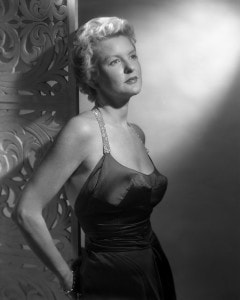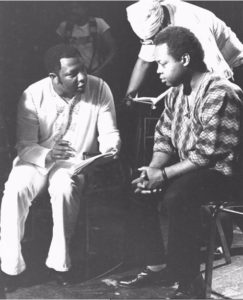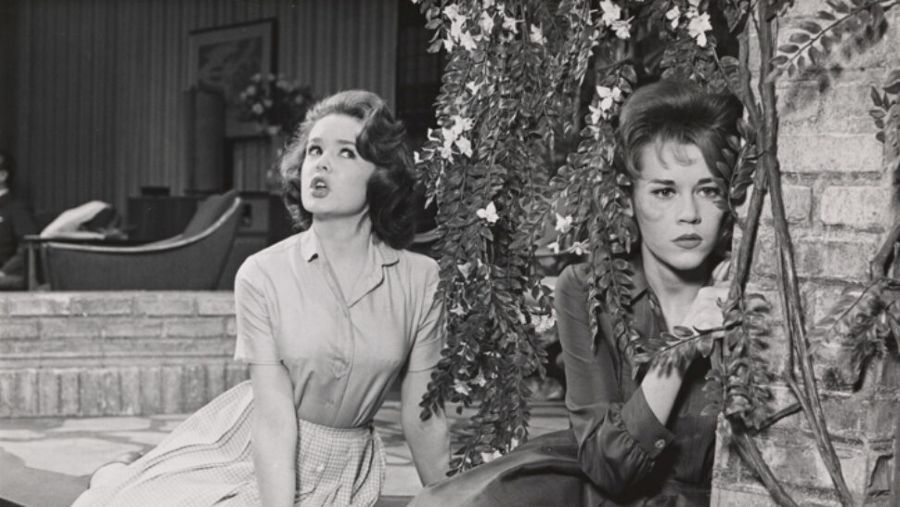1920 (105 years ago)
On Feb. 3, Eugene O’Neill’s first full-length drama, Beyond the Horizon, opened at the Morosco Theatre in New York City. The play follows a decade in the lives of the Mayo brothers, who both tragically love the same woman, Ruth. Beyond the Horizon marked an important shift in American theatre from melodrama to psychological realism, as the play contemplates the consequences of going against one’s nature and not following one’s dreams. The play won the 1920 Pulitzer Prize for Drama, the first of O’Neill’s four Pulitzers; he is the only playwright to accomplish this feat.
1925 (100 years ago)

On Feb. 2, Elaine Stritch was born in Detroit. Over her six-decade career, she was nominated for five Tonys, finally winning in 2002 for her one-woman show Elaine Stritch at Liberty. She was also nominated for nine Emmys (she won four) and a Grammy. Stritch famously originated the role of Joanne in Stephen Sondheim’s Company, which premiered in 1970. Known for what The New York Times called in her obituary her “whiskey voice” and “blunt charisma,” Stritch was a force on- and offstage. After moving back home to Michigan in 2013 to be close to family, she died in Birmingham, Michigan, a year later at the age of 89.
1960 (65 years ago)
On Feb. 29, Jane Fonda made her Broadway debut at age 22 in There Was a Little Girl at the Cort Theatre. Playing a young Philadelphia woman who is abducted and raped, she received her first Tony nomination for Best Featured Actress in a Play, though the play only ran for two weeks. The New York Times called Fonda’s performance an “impressive Broadway debut.” She performed in three more Broadway shows in the 1960s, but was not nominated for another Tony until her 2006 role in Moisés Kaufman’s 33 Variations.
1970 (55 years ago)

Woodie King Jr. founded the New Federal Theatre at St. Augustine’s Church on Henry Street in New York City. In its inaugural season, King directed Tennessee Williams’s Suddenly Last Summer, as well as Earl Anthony’s Charlie Can’t Win No Wars on the Ground and The (Mis) Judgment. J.e. Franklin’s Black Girl, directed by Shauneille Perry, went on to become an Off-Broadway hit.
2000 (25 years ago)
First Nations performance group Full Circle, based in Vancouver, British Columbia, founded the Talking Stick Festival, a two-week gathering that brings together Native and Indigenous performance artists from the worlds of visual arts, dance, theatre, music, powwow, and film. Full Circle founder Margo Kane, a Cree-Saulteaux performing artist, also serves as the artistic director of Talking Stick Festival. Kane stated in an interview with Michelle La Flamme that she wanted to give “voice to any voices at any level of development,” which is why the festival features both finished pieces and works-in-progress. While the festival originally ran every February, since the Covid pandemic, it has moved to June.
2005 (20 years ago)

On Feb. 23, Canadian theatremaker Tom Patterson died at the age of 85. Patterson founded the Stratford Festival in 1952 with British director Tyrone Guthrie and served as the company’s first artistic director. The first season, in the summer of 1953, included Shakespeare’s Richard III and All’s Well That Ends Well. The productions were met with enough critical and commercial success to turn the small city of Stratford, Ontario, into an artistic and cultural hub. Their continued success over the last seven decades led to the construction of four theatres and an expanded six-month season. Though it started as a solely Shakespeare-focused festival, it eventually expanded to include everything from Tennessee Williams to modern Broadway musicals. In 2022, the Stratford Festival opened the Tom Patterson Theater, honoring their late founder.
Support American Theatre: a just and thriving theatre ecology begins with information for all. Please join us in this mission by joining TCG, which entitles you to copies of our quarterly print magazine and helps support a long legacy of quality nonprofit arts journalism.
Related

This Month in Theatre History
A begrudging Pulitzer, a court case turned theatre (twice over), an award-winning life story, and a world premiere.
In "Theatre History"
From Sea-Chanties to the Moon
A spate of intense new productions shows how Eugene O'Neill's theatrical vision deepened as his canvas tightened.
In "Critic's Notebook"

This Month in Theatre History
November recalls the play Lincoln first saw Booth in, Kern's Princess Theatre musicals, a Puerto Rican literary godfather, a gospel Oedipus musical, and a century-defining epic.
In "Theatre History"





